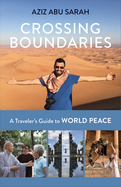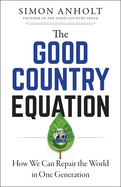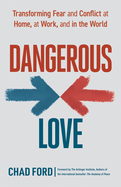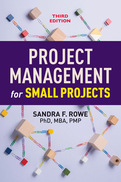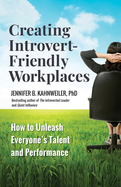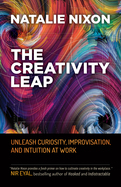Search Results: ""
Results 1081-1086 of 1358
Crossing Boundaries
2020
An essential strategy book for how to have transformative, sustainable, responsible travel experiences—starting at your own front door. Recognized Peacemaker and National Geographic Explorer Aziz Abu Sarah shows how, by crossing boundaries, we can heal our world from stereotypes, prejudice, and ignorance.
Whether you're planning future travels or exploring the diverse cultures in your own community, Crossing Boundaries provides strategies for growth and getting out of your comfort zone. Moving between inspirational stories, humorous anecdotes, and helpful conflict resolution tips, Abu Sarah guides you through having personal, meaningful experiences with people from different backgrounds. He sketches a vision of a kind of travel with the power to help heal the divides of a world polarized by seemingly intractable conflicts.
Abu Sarah argues that transformative travel can start at home. He knows this firsthand: a former Palestinian radical, he shares his own moving story of creating connections across his divided hometown of Jerusalem, and of co-founding a tour agency with a Jewish American. Today, they direct Dual Narrative Tours, co-led by guides from different communities in countries like Israel and Palestine, Ireland and Northern Ireland, North and South Vietnam, and many others.
Drawing on these experiences, Abu Sarah's book offers tips on how to meet people naturally and safely, design an inclusive itinerary, shop to support the local economy, deal with setbacks, and much more. A guide for going beyond museums and monuments, this book is for both the first-timer and seasoned veteran. Abu Sarah shows that if you put down your phone and strike up a conversation, you can break through the walls that separate people. You'll discover shared values, build lasting relationships, and realize that far more unites us than divides us.
Whether you're planning future travels or exploring the diverse cultures in your own community, Crossing Boundaries provides strategies for growth and getting out of your comfort zone. Moving between inspirational stories, humorous anecdotes, and helpful conflict resolution tips, Abu Sarah guides you through having personal, meaningful experiences with people from different backgrounds. He sketches a vision of a kind of travel with the power to help heal the divides of a world polarized by seemingly intractable conflicts.
Abu Sarah argues that transformative travel can start at home. He knows this firsthand: a former Palestinian radical, he shares his own moving story of creating connections across his divided hometown of Jerusalem, and of co-founding a tour agency with a Jewish American. Today, they direct Dual Narrative Tours, co-led by guides from different communities in countries like Israel and Palestine, Ireland and Northern Ireland, North and South Vietnam, and many others.
Drawing on these experiences, Abu Sarah's book offers tips on how to meet people naturally and safely, design an inclusive itinerary, shop to support the local economy, deal with setbacks, and much more. A guide for going beyond museums and monuments, this book is for both the first-timer and seasoned veteran. Abu Sarah shows that if you put down your phone and strike up a conversation, you can break through the walls that separate people. You'll discover shared values, build lasting relationships, and realize that far more unites us than divides us.
“Not only does Anholt explain the challenges facing the world with unique clarity, he also provides genuinely new, informative, practical, innovative solutions. . . . The book is a must-read for anyone who cares about humanity's shared future.”
—H. E. Mohamed Abdullahi Mohamed (Farmaajo), President of the Federal Republic of Somalia
Simon Anholt has spent decades helping countries from Austria to Zambia to improve their international standing. Using colorful descriptions of his experiences—dining with Vladimir Putin at his country home, taking a group of Felipe Calderon's advisors on their first Mexico City subway ride, touring a beautiful new government hospital in Afghanistan that nobody would use because it was in Taliban-controlled territory—he tells how he began finding answers to that question.
Ultimately, Anholt hit on the Good Country Equation, a formula for encouraging international cooperation and reinventing education for a globalized era. Anholt even offers a “selfish” argument for cooperation: he shows that it generates goodwill, which in turn translates into increased trade, foreign investment, tourism, talent attraction, and even domestic electoral success. Anholt insists we can change the way countries behave and the way people are educated in a single generation—because that's all the time we have.
—H. E. Mohamed Abdullahi Mohamed (Farmaajo), President of the Federal Republic of Somalia
Simon Anholt has spent decades helping countries from Austria to Zambia to improve their international standing. Using colorful descriptions of his experiences—dining with Vladimir Putin at his country home, taking a group of Felipe Calderon's advisors on their first Mexico City subway ride, touring a beautiful new government hospital in Afghanistan that nobody would use because it was in Taliban-controlled territory—he tells how he began finding answers to that question.
Ultimately, Anholt hit on the Good Country Equation, a formula for encouraging international cooperation and reinventing education for a globalized era. Anholt even offers a “selfish” argument for cooperation: he shows that it generates goodwill, which in turn translates into increased trade, foreign investment, tourism, talent attraction, and even domestic electoral success. Anholt insists we can change the way countries behave and the way people are educated in a single generation—because that's all the time we have.
Dangerous Love
2020
“Chad Ford reminds us that humanity lies within all of us, and although conflict is everywhere in today's world, we have the tools we need to overcome obstacles and to thrive. This is a fantastic, timely book that I highly recommend."
-Steve Kerr, Head Coach, Golden State Warriors“Chad Ford reminds us that humanity lies within all of us, and although conflict is everywhere in today's world, we have the tools we need to overcome obstacles and to thrive. This is a fantastic, timely book that I highly recommend."
-Steve Kerr, Head Coach, Golden State Warriors
Knowing how to transform conflict is critical in both our personal and professional lives. Yet, by and large, we are terrible at it. The reason, says longtime mediator Chad Ford, is fear. When conflict comes, our instincts are to run or fight.
To transform conflict, Ford says we need to turn toward the people we are in conflict with, put down our physical and emotional weapons, and really love them with the kind of love that leads us to treat others as fellow human beings, not as objects in our way. We have to open ourselves up with no guarantee that anyone on the other side will do the same. While this can feel even more dangerous than conflict itself, it allows us to see the humanity of others so clearly that their needs and desires matter to us as much as our own.
Ford shows dangerous love in action through examples ranging from his work in the Middle East to a deeply moving story about reconciling with his father. He explains why we disconnect from people at the very time we need to be most connected and the predictable patterns of justification and escalation that ensue. Most importantly, he gives us a path to practice dangerous love in the conflicts that matter most to us.
-Steve Kerr, Head Coach, Golden State Warriors“Chad Ford reminds us that humanity lies within all of us, and although conflict is everywhere in today's world, we have the tools we need to overcome obstacles and to thrive. This is a fantastic, timely book that I highly recommend."
-Steve Kerr, Head Coach, Golden State Warriors
Knowing how to transform conflict is critical in both our personal and professional lives. Yet, by and large, we are terrible at it. The reason, says longtime mediator Chad Ford, is fear. When conflict comes, our instincts are to run or fight.
To transform conflict, Ford says we need to turn toward the people we are in conflict with, put down our physical and emotional weapons, and really love them with the kind of love that leads us to treat others as fellow human beings, not as objects in our way. We have to open ourselves up with no guarantee that anyone on the other side will do the same. While this can feel even more dangerous than conflict itself, it allows us to see the humanity of others so clearly that their needs and desires matter to us as much as our own.
Ford shows dangerous love in action through examples ranging from his work in the Middle East to a deeply moving story about reconciling with his father. He explains why we disconnect from people at the very time we need to be most connected and the predictable patterns of justification and escalation that ensue. Most importantly, he gives us a path to practice dangerous love in the conflicts that matter most to us.
Project Management for Small Projects shows you how to tailor bureaucratic planning processes to a sleek minimum while still keeping your project running like a well-oiled machine.
Project Management for Small Projects shows you how to tailor bureaucratic planning processes to a sleek minimum while still keeping your project running like a well-oiled machine.
The Project Management Body of Knowledge (PMBOK) recommends tailoring the planning processes to fit the size of your project, but it doesn't always fully explain how. Using too much process can be as detrimental to a project as not using a process at all. For years, this book has helped managers of small projects design processes that are neither too big nor too small but "just right." It provides simplified but compliant tools for immediate use in managing small projects. And since most small projects tend to be similar in structure or outcome, a template for one project can be used for future projects. This new edition of Project Management for Small Projects has been updated to align with the latest PMBOK. In addition, there is new material on Agile project management and on the essential leadership skills for small project managers.
Project Management for Small Projects shows you how to tailor bureaucratic planning processes to a sleek minimum while still keeping your project running like a well-oiled machine.
The Project Management Body of Knowledge (PMBOK) recommends tailoring the planning processes to fit the size of your project, but it doesn't always fully explain how. Using too much process can be as detrimental to a project as not using a process at all. For years, this book has helped managers of small projects design processes that are neither too big nor too small but "just right." It provides simplified but compliant tools for immediate use in managing small projects. And since most small projects tend to be similar in structure or outcome, a template for one project can be used for future projects. This new edition of Project Management for Small Projects has been updated to align with the latest PMBOK. In addition, there is new material on Agile project management and on the essential leadership skills for small project managers.
"This important book offers organizations the keys to introvert inclusion."
—Susan Cain, New York Times bestselling author of Quiet Influence
The first guide to creating a welcoming culture that maximizes the powerful contributions introverts bring to the workplace.
As the diversity, equity, and inclusion wave widens and deepens its reach, introversion is becoming a natural part of that movement. After all, about half the population identify as introverts, but many organizations are stuck in traditional extrovert-centric workplace cultures that reward people for speaking up publicly, expect them to log face time, and employ hiring and promotion practices rooted in the past. This ultimately discourages introverts from contributing and reaching their full talent potential, which could have a major impact on the bottom line.
"Champion for introverts" Jennifer Kahnweiler offers a road map for everyone in the workplace--including leaders, human resource managers, and team members--to create inclusive, introvert-friendly cultures. Kahnweiler provides an assessment to determine how introvert friendly your organization is and looks at every aspect of organizational life--hiring, training, leading, communicating, meeting, designing workplaces, and more--through an inclusive lens.
You'll discover how to make open-space offices introvert friendly, what the best practices are for encouraging introverts to participate on teams, which training techniques work best for introverts, and how to make remote positions work.
—Susan Cain, New York Times bestselling author of Quiet Influence
The first guide to creating a welcoming culture that maximizes the powerful contributions introverts bring to the workplace.
As the diversity, equity, and inclusion wave widens and deepens its reach, introversion is becoming a natural part of that movement. After all, about half the population identify as introverts, but many organizations are stuck in traditional extrovert-centric workplace cultures that reward people for speaking up publicly, expect them to log face time, and employ hiring and promotion practices rooted in the past. This ultimately discourages introverts from contributing and reaching their full talent potential, which could have a major impact on the bottom line.
"Champion for introverts" Jennifer Kahnweiler offers a road map for everyone in the workplace--including leaders, human resource managers, and team members--to create inclusive, introvert-friendly cultures. Kahnweiler provides an assessment to determine how introvert friendly your organization is and looks at every aspect of organizational life--hiring, training, leading, communicating, meeting, designing workplaces, and more--through an inclusive lens.
You'll discover how to make open-space offices introvert friendly, what the best practices are for encouraging introverts to participate on teams, which training techniques work best for introverts, and how to make remote positions work.
The Creativity Leap
2020
"Natalie Nixon's new book provides a fresh primer on how to cultivate creativity in the workplace.”
—Nir Eyal, bestselling author of Hooked and Indistractable
Too many people associate creativity solely with the arts, even though to be an incredible scientist, engineer, or entrepreneur requires immense creativity. And it's the key to developing breakthrough products and services. Natalie Nixon, a creativity strategist with a background in cultural anthropology, fashion, and service design, says that in the fourth industrial revolution a creativity leap is needed to bridge the gap that exists between the churn of work and the highly sought-after prize called innovation.
Nixon says that since humans are hardwired to be creative, it is a competency anyone can develop. She shows that it balances wonder (awe, audacity, and curiosity) with rigor (discipline, skill-building, and attention to detail), and that inquiry, improvisation, and intuition are the key practices that increase those capacities. Drawing on interviews with fifty-six people from diverse backgrounds—farming, law, plumbing, architecture, perfumery, medicine, education, technology, and more—she offers illuminating examples of how creativity manifests in every kind of work.
Combining creativity tools and techniques with real-world stories of innovative people and businesses, this book is a provocation, an inspiration, and an invitation to unleash the innate creativity that lies within each of us. It offers a more dynamic and integrative way to adapt and innovate, one that allows us the freedom to access our full human selves.
—Nir Eyal, bestselling author of Hooked and Indistractable
Too many people associate creativity solely with the arts, even though to be an incredible scientist, engineer, or entrepreneur requires immense creativity. And it's the key to developing breakthrough products and services. Natalie Nixon, a creativity strategist with a background in cultural anthropology, fashion, and service design, says that in the fourth industrial revolution a creativity leap is needed to bridge the gap that exists between the churn of work and the highly sought-after prize called innovation.
Nixon says that since humans are hardwired to be creative, it is a competency anyone can develop. She shows that it balances wonder (awe, audacity, and curiosity) with rigor (discipline, skill-building, and attention to detail), and that inquiry, improvisation, and intuition are the key practices that increase those capacities. Drawing on interviews with fifty-six people from diverse backgrounds—farming, law, plumbing, architecture, perfumery, medicine, education, technology, and more—she offers illuminating examples of how creativity manifests in every kind of work.
Combining creativity tools and techniques with real-world stories of innovative people and businesses, this book is a provocation, an inspiration, and an invitation to unleash the innate creativity that lies within each of us. It offers a more dynamic and integrative way to adapt and innovate, one that allows us the freedom to access our full human selves.


